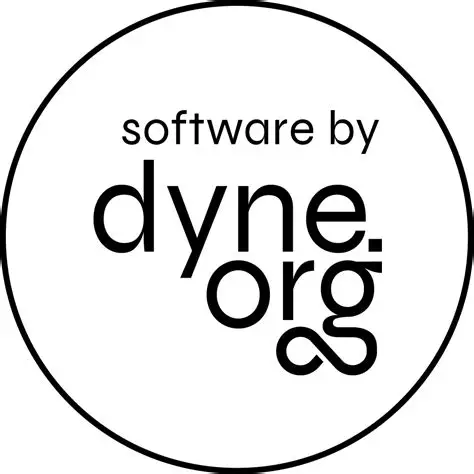This software aims to be a general implementation of a UNIX tool for privilege escalation, mostly for didactic and frugal purposes. It is designed to run SUID, with "super-user powers" to execute things as root on the system it is installed.
It will grant super user access to all users included in at least one system group named as admin, wheel, sudo or sud. Simple as that, no password asked.
Clone the literate submodule: git submodule update --init
Install dub (the D language compiler)
Build the literate code parser: make -C literate
Build sud: make release
Other build targets:
Usage:
make <target> CC=gcc (or clang)
General
codegen Generate C code from literate file in src/
release Build a dynamically linked release
debug Build a shared binary with debugging symbols
install Install the current build system-wide
clean Clean the build
stamp Generate a SHA512 hash and timestamp for the binary build
release-musl Build a static release with musl
release-rpi Build a static release with cross-pi
release-sign Sign the SHASUMS on the uploaded release
This software is a direct response to the sudo tool which has been adopted by major Linux and BSD distros while augmenting its complexity and collecting vulnerabilities last not least CVE-2021-3156.
With SUD I intend to finally act up and innovate this field of development considering we have been relying for 10 years on a tool that could have been trivially hacked all that time.
SUD doesn't covers all use-cases addressed by alternatives, but a few common situations in which multi-user privilege isolation is a necessary and sufficient condition to safely operate a local or remote machine.
Below a short summary of pros (advantages) and cons (disadvantages) over existing alternatives:
Pros compared to sudo:
- Easier audit thanks to literate development methodology.
- Fewer lines of code, fewer features, fewer dependencies.
Pros compared to doas:
No configuration file, no parsers.
Pros compared to sup and my own bloated sup:
Runtime configuration based on GID (well, not really an advantage, more of a different approach for different use-cases).
Public domain licensing
- Not heavily tested
- Code may be improved in some places
- Documentation needs more lovance and spell checking
SUD is software written following the literate-programming approach and welcomes reviews and contributions.
Before using SUD you are supposed to read its annotated source-code.
SUD is distributed as a static binary for various platforms on files.dyne.org/sud
Binaries include musl-libc as a statically linked component.
To start using sud on a 64bit GNU+Linux machine, simply do:
curl https://files.dyne.org/sud/sud-x86-musl > ~/Downloads/sud
Or on Apple/OSX:
curl https://files.dyne.org/sud/sud-x86-osx > ~/Downloads/sud
Or on a RaspberryPI (any version)
curl https://files.dyne.org/sud/sud-arm-rpi > ~/Downloads/sud
Then to activate it must be in the path and made SUID:
sudo install -m 4755 -o root -g 0 ~/Downloads/sud /usr/local/bin/sud
Use vigr or edit /etc/group to make sure your privileged users are in the admin, wheel or sudo groups.
To verify the binary integrity of SUD use sud -v and compare the SHA512 to the hash published here and signed with my gpg key: it ties the binary to the sud.c sourcecode used to build it. Here a shell snippet that does just that:
hash=https://files.dyne.org/sud/SHASUMS.txt
echo "Checking sud binary integrity from: $hash\n"
curl -s https://jaromil.dyne.org/jaromil.pub | gpg --import
curl -s $hash | gpg --verify
echo "\nReleases listed:"
curl -s $hash | awk '/sud.c/ {print $0}'
echo "\nYours found at $(which sud):"
sud -v | awk '/sud.c/ {print $0}'
SUD can either be built as a static executable (no dynamic linking of libraries) or dynamically linked.
Literate programming source-code starts from documentation which is
then used to generate the source-code and a website. In case of SUD
I'm using the Literate Programming
System written in D, which is
included as a submodule in the literate sub-folder. To make sure it is ready for use:
- install
gccor another C compiler - install
dubthe D package registry and a D compiler - make sure the
literategit submodule is updated - make -C literate to build the documentation tool
- type
maketo build sud - type
sudo make installto install sud with suid
Tead the Makefile for other supported build targets.
All the above should be possible on any operating system, if you don't know why is most likely because you don't know well enough the system you are running. Go find out.
This repository is maintained to improve the clarity of code and eventually its security, would any flaws be found. It will not be developed further: no new features, eventually less code.
SUD is licensed as Public Domain in the hope to improve the awareness of how privilege escalation is done. The portability of SUD to any BSD and POSIX compliant system is a desirable feature and contributions are welcome.
Contribute via issues or by sending me a private email.
I am also considering to write a new software following this effort: a very secure alternative to sudo that covers some of its core features, plus adds new features and implements new ideas to grant the security of a UNIX privilege escalation tool on GNU/Linux and Apple/OSX.
Keep an eye here in case you are interested.
SUD is designed and written by Denis Roio <Jaromil @ dyne.org>.
SUD redistributes the parg library by Jørgen Ibsen.
Code reviews were kindly contributed by members of the Veteran Unix Admins and the 2600 Hacker Quarterly online communities.
SUD is Copyright (C) 2021-2022 by the Dyne.org foundation

To the extent possible under law,
Dyne.org foundation
has waived all copyright and related or neighboring rights to
sud.
This work is published from:
The Netherlands.
